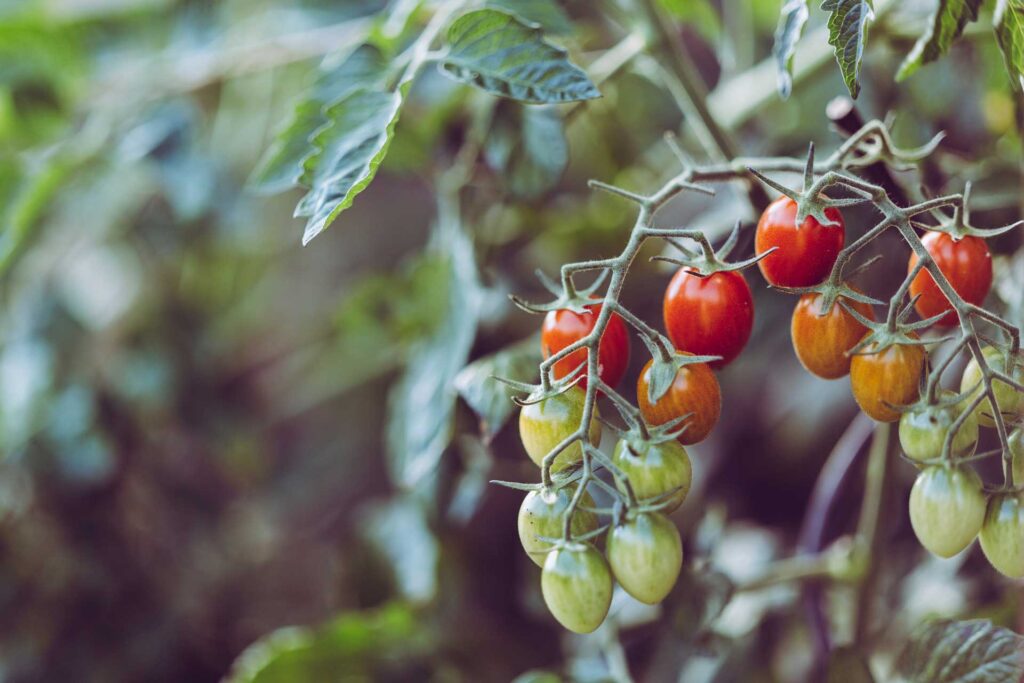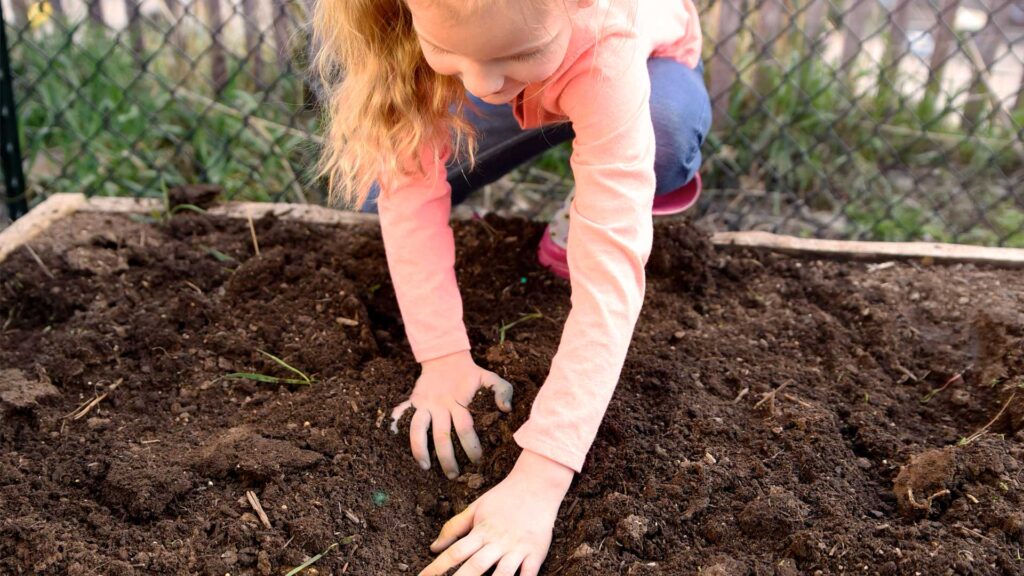Planting fruits and vegetables with your kids not only encourages a healthy and balanced diet, but can inspire happier kids. Grow together and dig into the benefits of gardening as a family.
Perks of Gardening
Being outdoors is visibly relaxing
Creating an opportunity for you and the whole family to unplug, being outdoors helps you to center your mind and release stress.
Did you know: natural light normalizes your sleep schedule
Creates an opportunity for family bonding
Gardening can be fun for the whole family! Get the kids excited each spring as it’s time to start the plants indoors or have a big yard cleanup and garden prep each season. Give your child the opportunity to choose a plan or two that gets planted for extra fun.
Encourages healthy eating
Did you know foods like spinach, garlic and beets have been shown to help with cognitive function in kids? Many vegetables also have vitamins, minerals, and phytonutrients that are essential for boosting brain development. They are easy to grow yourself! Try it out this year!
Engages all the senses
Whether you’re digging in the dirt, listening to the buzz of the bees, or taking in the aroma of fresh cut grass, gardening engages all of the senses.
Enhances the ability to plan and organize
Gardening is a lot of work and needs to be thought out ahead of time; some plants require different environments and preparation. Involving your children from the start is a great way to help them understand planning and organization, important life skills.
Introduces scientific concepts
What makes leaves green? What do plants need to thrive? Start thinking like a scientist and explore the answers to questions that arise!
Strengthens immunity
Have you ever heard of the hygiene hypothesis? It’s based around the idea that the lack of exposure to germs can interfere with the development of a child’s immune system. By letting your kids play in the dirt and help with gardening, you reduce the risk of asthma, hay fever and a wide range of other conditions.
Strengthens math skills
Play games while gardening to help with math skills! Take a measurement each day of the plants to see how tall they are growing, and count out the seeds as you plant them in the ground. Many plants require seeds to be planted a certain amount of space away from each other, so help your child measure the inches between each plant.
Teaches patience
With gardening, you can’t plant a seed and expect to see a carrot or tomato the next day. Patience is one of the biggest virtues gained throughout the season as your child learns and watches their plants grow.
Teaches responsibility
If your kids are too young to help with all of the gardening chores, give them one simple task: watering. This gives your kids the chance to understand responsibilities and what it means to take care of something.
Make it Fun
Get crafty with row markers. Paint on rocks or design your own yard sticks with the kids. Yard sticks are a great way to measure growth from your larger plants like peas, tomatoes, corn, etc. This introduces math to gardening as you measure week to week.
Keep a garden journal. The journal logs what you plant and harvest each day. Make it your own by adding when you watered the plants, drawing a diagram of the garden layout, and more. This journal also serves as an educational opportunity. Your kids will practice their penmanship, spelling, and reading!
Don’t have enough yard space? Check out these unique planters:
- Tires: paint them bright colors or design them based on what you will plant in them
- Old colanders or tea kettles from the kitchen
- Old shoes and boots
- Wood pallets or old wood boxes: you can also break down the pallets to make box planters
- Broken wheelbarrows, wagons or carts
- Old bird baths or cages
- Broken Tonka or construction toys


Best Fruits and Veggies to Grow with Kids
Kids want what they want, and they want it now.
One of the best parts of gardening is being able to eat raw produce straight from the vine or stem. If you don’t use herbicides and pesticides in your garden, these vegetables and fruits are okay without being washed first, but if you’re worried about this, keep a garden hose nearby!
- Green beans are one of the vegetables that reseeds itself for years to come. It’s great if you don’t have a green thumb!
- Cherry tomatoes are sweet and delicious, and they are the perfect size for small mouths!
- Snap peas are rich in fiber and vitamins. It’s ok if the kids eat them whole!
- Raspberries have the perfect combination between sweet and sour. Be careful though, some raspberries have little thorns.
- Strawberries are so yummy! But, be careful; too many and you’ll end up with a tummy ache.
Looking for your fruits and veggies to grow the best? Check out our guide for companion planting.
Curated by Sarah Richards

